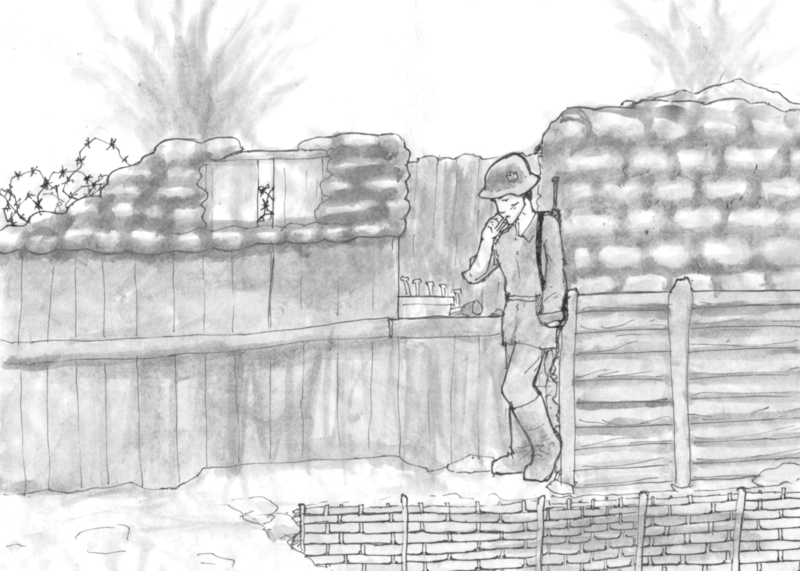
Been reading Ernst Jünger’s Storm of Steel.
I’m only partway through it; it’s extremely interesting so far, both for its description of the First World War and for the attitude of the writer. Anyone else would have started off by giving the reader a bit of background – “who am I? Why am I in the war? Why is there a war anyway?” Jünger displays no interest whatsoever in these questions and just jumps straight in. “There was a war. I was in it. This is what it was like.”
He describes the way that the two sides would develop unofficial agreements to restrict weapons usage:
“There was a tacit agreement between the infantry of both sides to restrict themselves to rifle fire; all recourse to explosives was punished by a double load back. Unfortunately, our opponents tended to have far more munitions than ourselves, and so could play the game for longer.”
Storm of Steel, p. 65
I recently came upon this link on the same subject. I haven’t got to the point in the book where chemical weapons began to be deployed; I wonder whether any similar tit-for-tat arrangements evolved then and what Jünger has to say about that. I’m also reminded of Rhett Butler’s response in Gone With the Wind when war breaks out: everyone thinks the South is going to steamroll the North, and Butler starts asking awkward questions about how many munitions factories the South has and whether they’re sure that southern valour is going to be enough against an enemy with more cannons.
In similar vein:
“On some sectors of the line, say at the sap heads, the sentries are barely thirty yards apart. Here you sometimes get personally acquainted with your opposite numbers; you get to know Tommy or Fritz or Wilhelm by his cough or his whistle or his singing voice. Shouts are exchanged, often with an edge of rough humour.
“Hey, Tommy, you still there?”
“Yup!”Then get your head down, I’m about to start shooting at you!|
SoS, p. 45
He describes how the soldiers had to construct trenches without training, and do everything themselves:
…we do all possible tasks ourselves. And why wouldn’t we, given that we have representatives of every rank and calling in our midst? If one man doesn’t know, then another will. Only lately a miner took the pick out of my hand as I was working on our platoon dugout, and remarked: “Keep cutting at the bottom, the dirt at the top will come down by itself!”
p. 47
This would of course have applied to the other side too – we had lots of operational mines in those days; it wouldn’t apply these days though, virtually no experienced miners. British trenches weren’t as nice because the Germans seized the higher ground (expecting to fight defensively for a while) and the British and French tended to be left with lower ground, resulting in more trenches being dug close to the water table, and waterlogged trenches. (In Jünger’s sector it doesn’t sound like that was the case, though.)
I wonder if my ancestors were located near where Jünger was, but I don’t know if the information is easily accessible.
